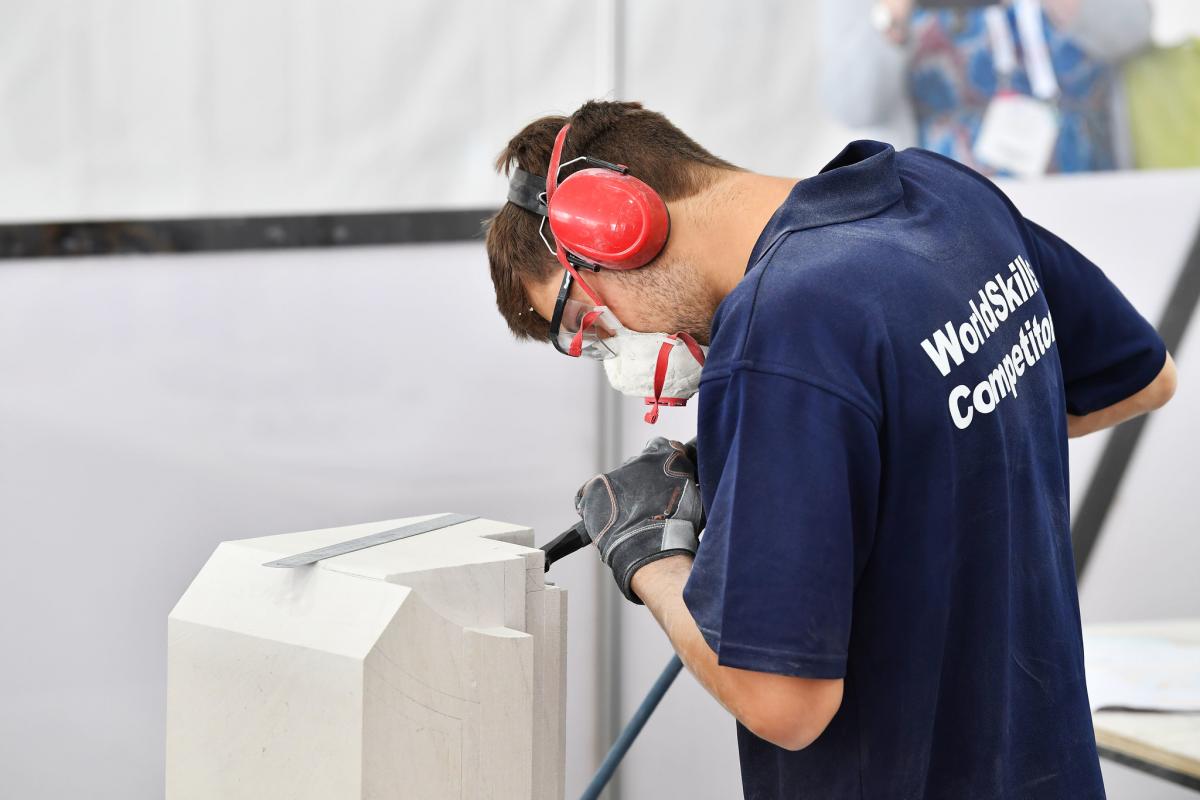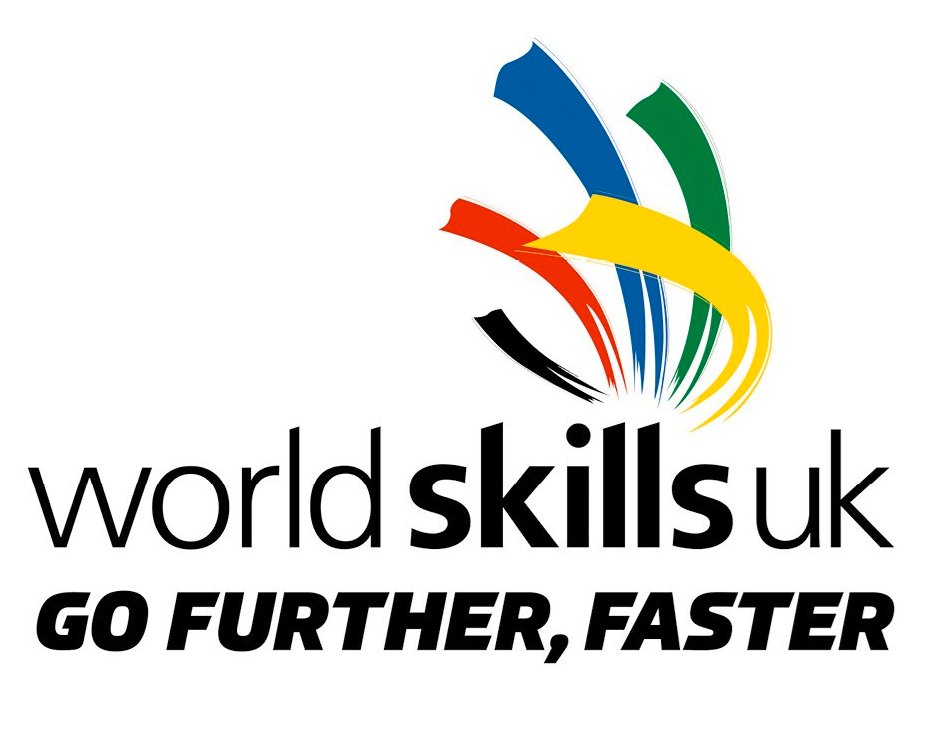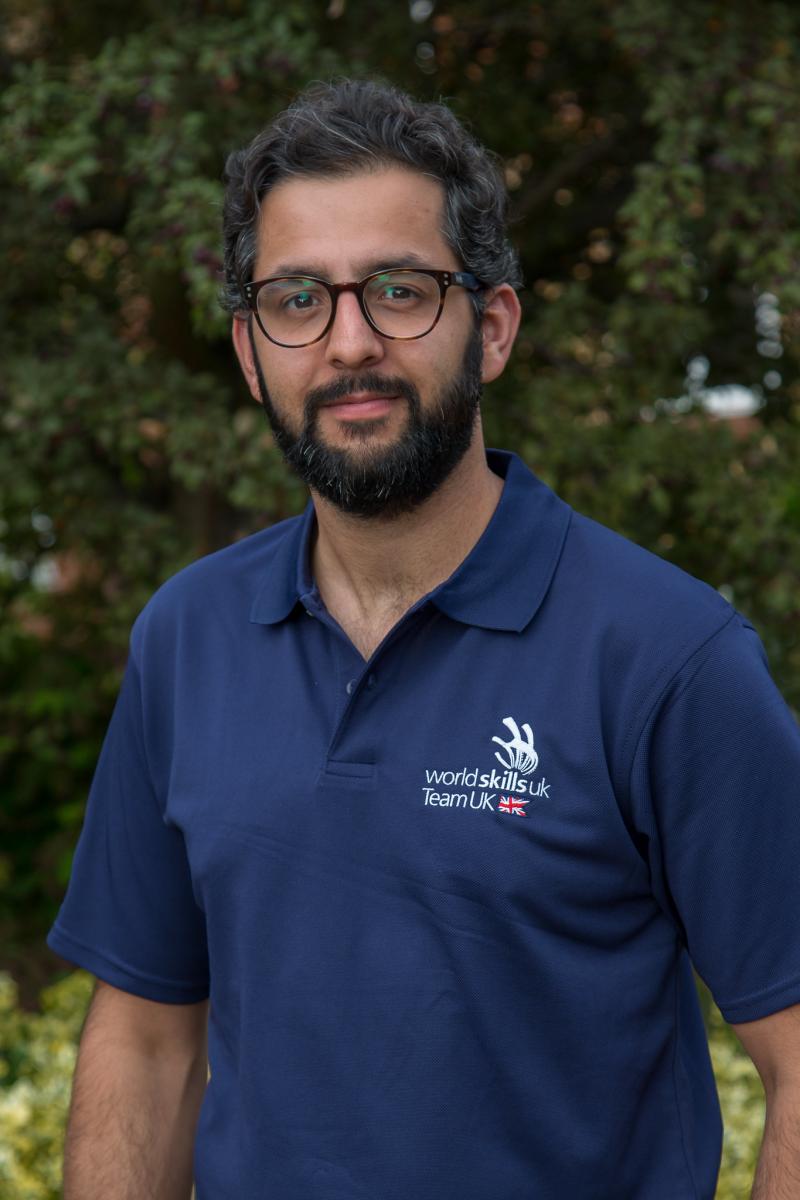
...by Marc Pate, Man of Stone and UK Expert in Architectural Stonemasonry for WorldSkills, the two yearly international youth vocational skills competition, the next of which is due to take place in Shanghai, China, in 2021.
Training young stonemasons is hard enough at the best of times – but how do you do it from opposite ends of the country?
This was the question posed to me with the outbreak of Covid-19.
I was training five excellent apprentice stonemasons with the aim of selecting one to represent the UK at EuroSkills, Europe’s largest skills competition the next of which is in Graz, Austria, when I was forced to put everything on hold by the coronavirus. It was supposed to be in September but has been put back to 6-10 January next year.
I knew any break in the 10 weeks of training would be disastrous and could mean the difference between winning and losing a medal. The challenge I faced was trying to develop young learners from a distance, while keeping it interesting and, most importantly, developing them to the international standard to compete with and beat the rest of Europe.
Luckily, I was starting with five of the nation’s best young learners who had already proven their skill at WorldSkills UK Live in November 2019.
Making up the UK Stonemasonry Squad are: Jordan Cliff, who trains at Building Craft College; James Digger, who trains at York College and works at York Minister; Owen Gallimore, who works at Portland Stone Firms; Josh Harvey, who trains at Weymouth College; Liam Macauley, who trains at Forth Valley College.
The answer to the problem I faced seemed simple - use digital technology. But as any stonemason knows, teaching a craft that has been around for thousands of years doesn’t easily translate to a Facebook video or WhatsApp call.
Careful consideration had to be given to the aims of the training and the practicalities of social distancing. The smart phone is now our ally and using them effectively would enable us to help these young people develop.
At the start of the pandemic all of Squad UK were sent home from work for the foreseeable future, with no quick end in sight. Fortunately, the guys were able to take home drawing and templet equipment and I was able to find a supplier for sheet zinc for the templates.
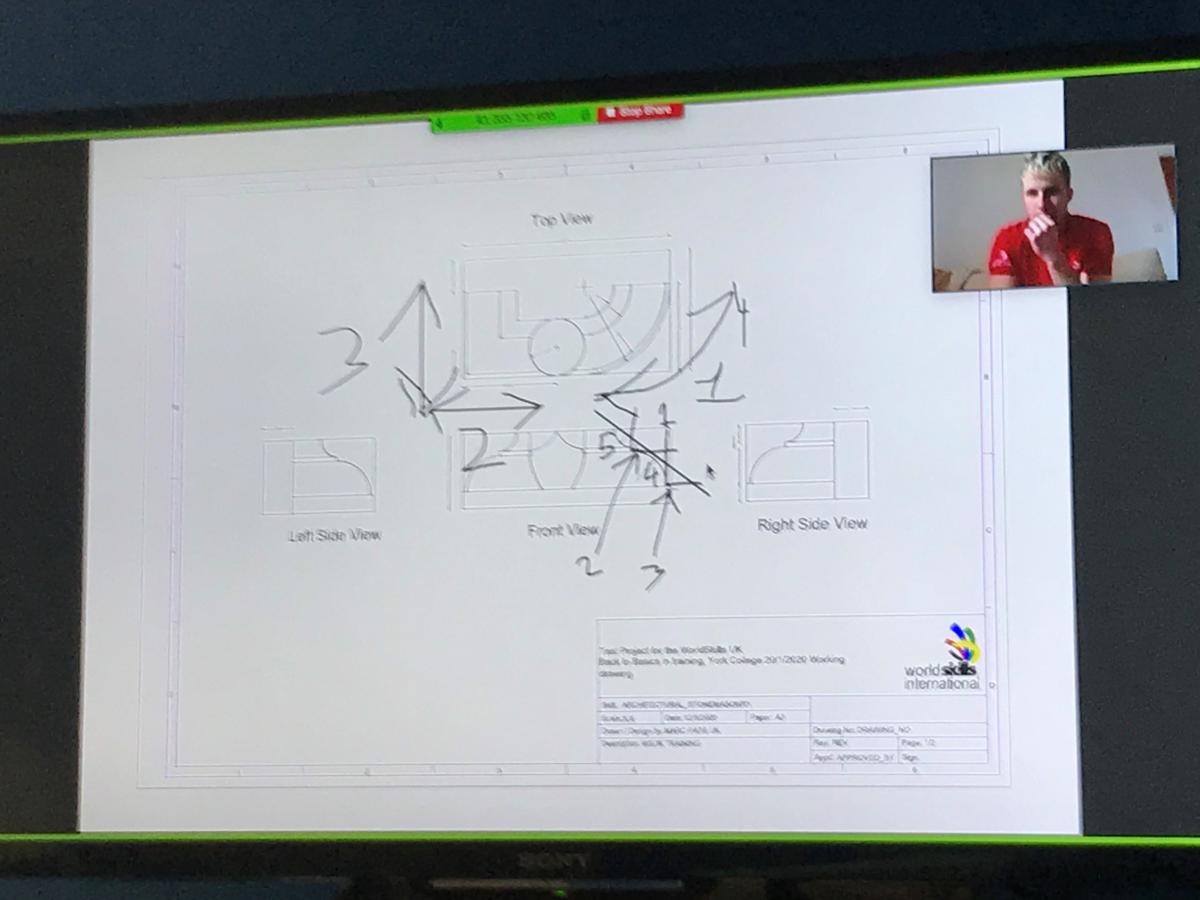 The aim of our training would be simple - use competition drawings to focus on the setting out and methodology of masonry to develop international competition processes, even when we can’t practise executing them. In the competition the masons have to work to 0-1mm accuracy to get full points. At 1-2mm they get half points. Anything more than that and they get no points.
The aim of our training would be simple - use competition drawings to focus on the setting out and methodology of masonry to develop international competition processes, even when we can’t practise executing them. In the competition the masons have to work to 0-1mm accuracy to get full points. At 1-2mm they get half points. Anything more than that and they get no points.
I wanted the guys to interpret and understand architectural drawings, know how to draw accurately, how to make zinc templets to the -1mm WorldSkills standard and, most of all, how to plan the working of a competition project from the first minute to the last. All these tasks can be carried out at home without being de-valued.
Competitors are given 30 mins before the start of the competition to review the drawings, analyse what they will have to do and work out a plan for recreating the design. Our training would do the same.
Over Zoom, I ask the competitors to give me an in-depth walk through of each step of the competition; to dissect and discuss the processes they chose to use and why; how long each section will take, and why their chosen method is best.
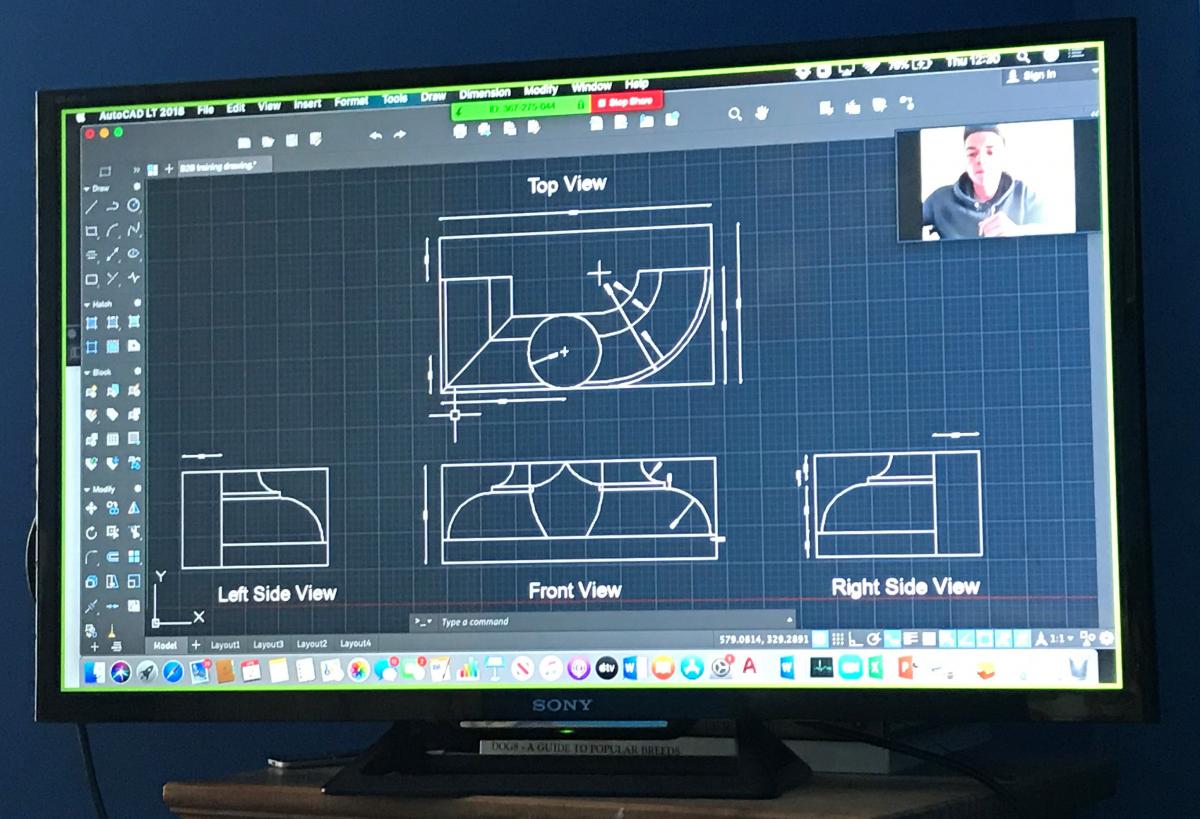 After the call they film themselves making the templets for the project and send me the video. They self-assess and discuss their assessment with me on another call.
After the call they film themselves making the templets for the project and send me the video. They self-assess and discuss their assessment with me on another call.
I am aware that, like many working in our industry, my Squad UK members are facing uncertainty around their apprenticeship and employment. So to help support all those in Squad UK, WorldSkills UK has moved its ‘Mindset Bootcamps’ online. Taking lessons from elite sport, these sessions deliver performance psychology and physiological wellbeing sessions to support Squad UK in creating medal-winning mindsets and cope with the challenges they are currently facing.
What amazes me about the young learners I work with is their resilience and their ability to respond to difficult situations. Every one of them has been able to advance their masonry thinking and develop their processes. They work confidently at a time when they are having to pause their working life. They are all self-aware and learn from mistakes, session by session.
At international competition, and at work, being smart and confident in your timing and processes is the key to success, and these young stonemasons are developing those skills every day.
We can’t be in a workshop, but we can still be stonemasons.
